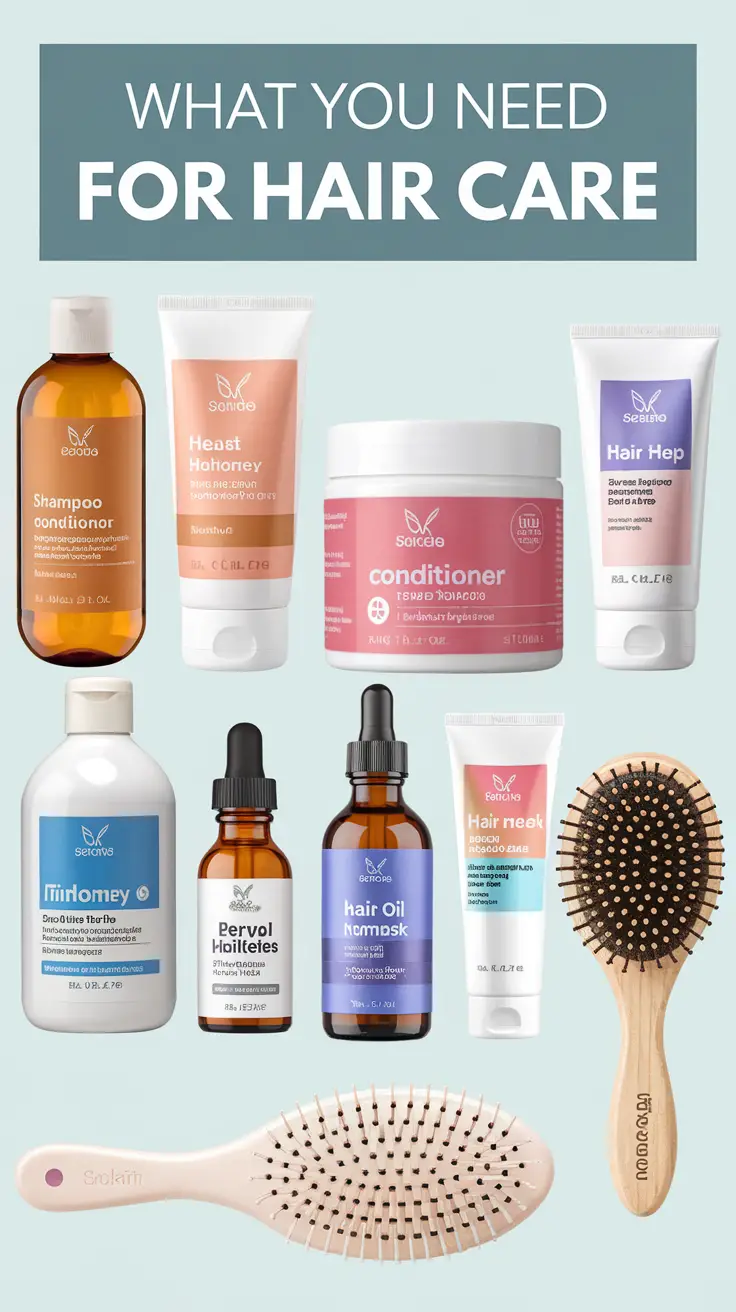What You Need for Hair Care
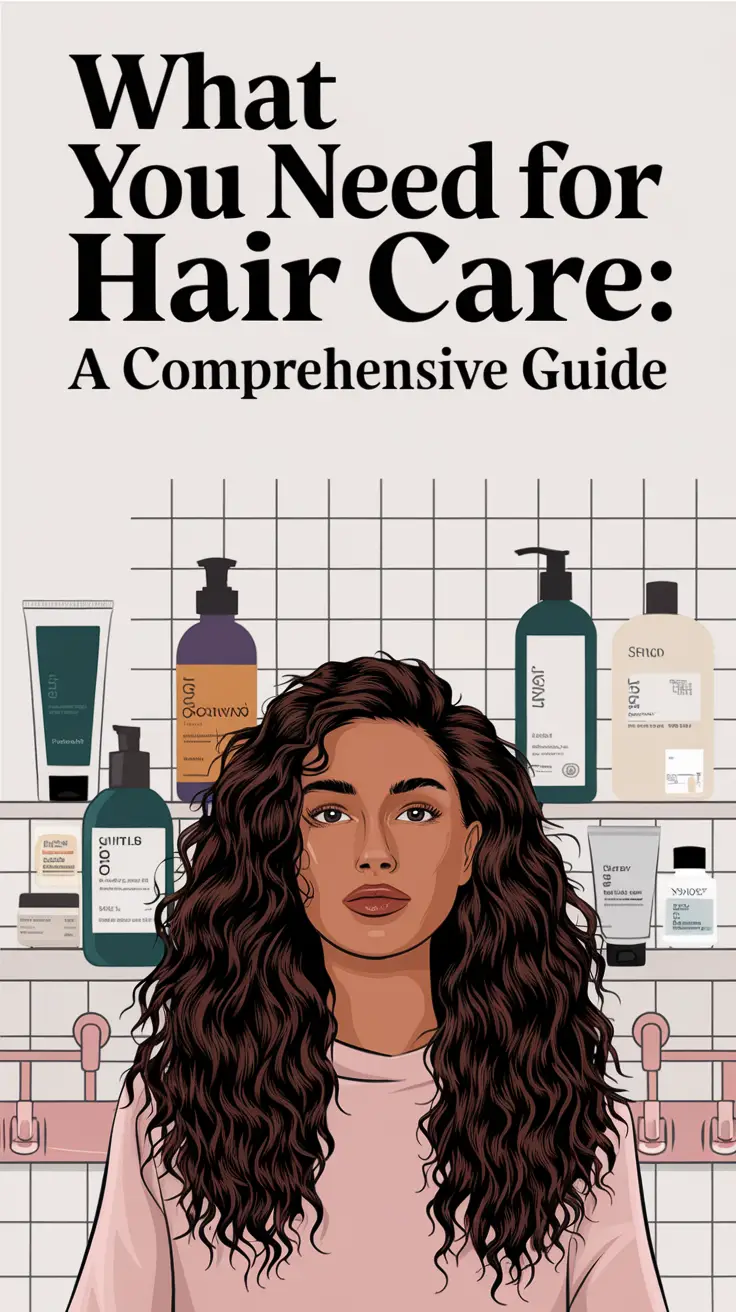
Healthy, beautiful hair isn’t just a matter of genetics—it’s the result of intentional care and a personalized routine. On my journey to achieving the hair of my dreams, I’ve discovered that the right practices, tools, and products make all the difference. Let’s dive into everything you need to know about hair care, from understanding your unique hair type to creating a sustainable routine that works for you.
Understanding Your Hair Type
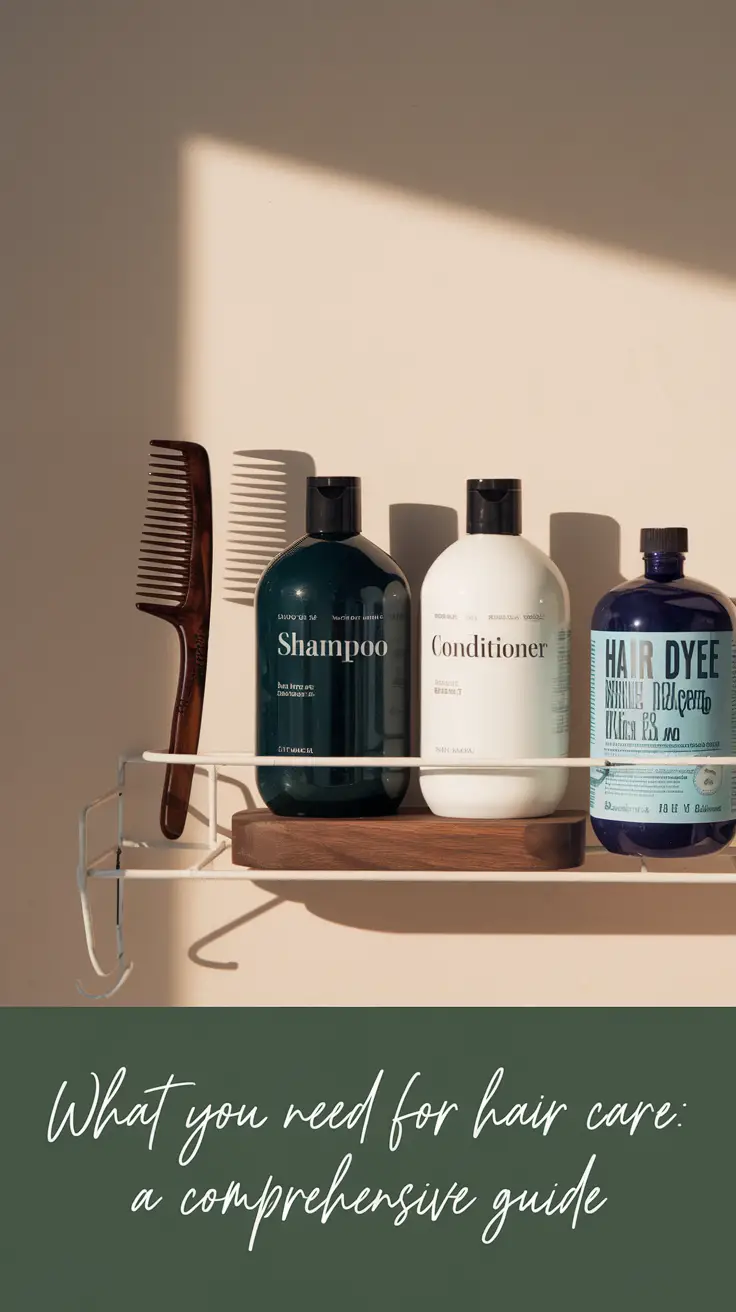
To build an effective hair care routine, you first need to identify your hair type. Each type has unique characteristics and care requirements:
| Hair Type | Characteristics | Care Tips |
|---|---|---|
| Straight | Smooth, shiny, and less frizz-prone | Use lightweight products to avoid weighing down hair. |
| Wavy | A mix of straight and curly | Focus on enhancing natural waves with curl creams. |
| Curly | Voluminous, prone to dryness | Use moisturizing shampoos and deep-conditioning masks. |
| Coily | Tightly curled and fragile | Incorporate leave-in conditioners and oils regularly. |
My tip: When I first started caring for my naturally wavy hair, switching to curl-friendly products transformed its texture. Experimentation is key to finding what works!
Essential Hair Care Practices
Regular Cleansing
Cleansing removes dirt, oil, and buildup, but over-washing can strip your hair of natural oils. Here’s how often to cleanse based on your hair type:
| Hair Type | Cleansing Frequency |
|---|---|
| Oily | Daily or every other day |
| Normal | Every 2-3 days |
| Dry | Once or twice a week |
Pro tip: Always use lukewarm water to wash your hair. Hot water might feel great, but it can dry out your scalp and hair, leading to breakage.
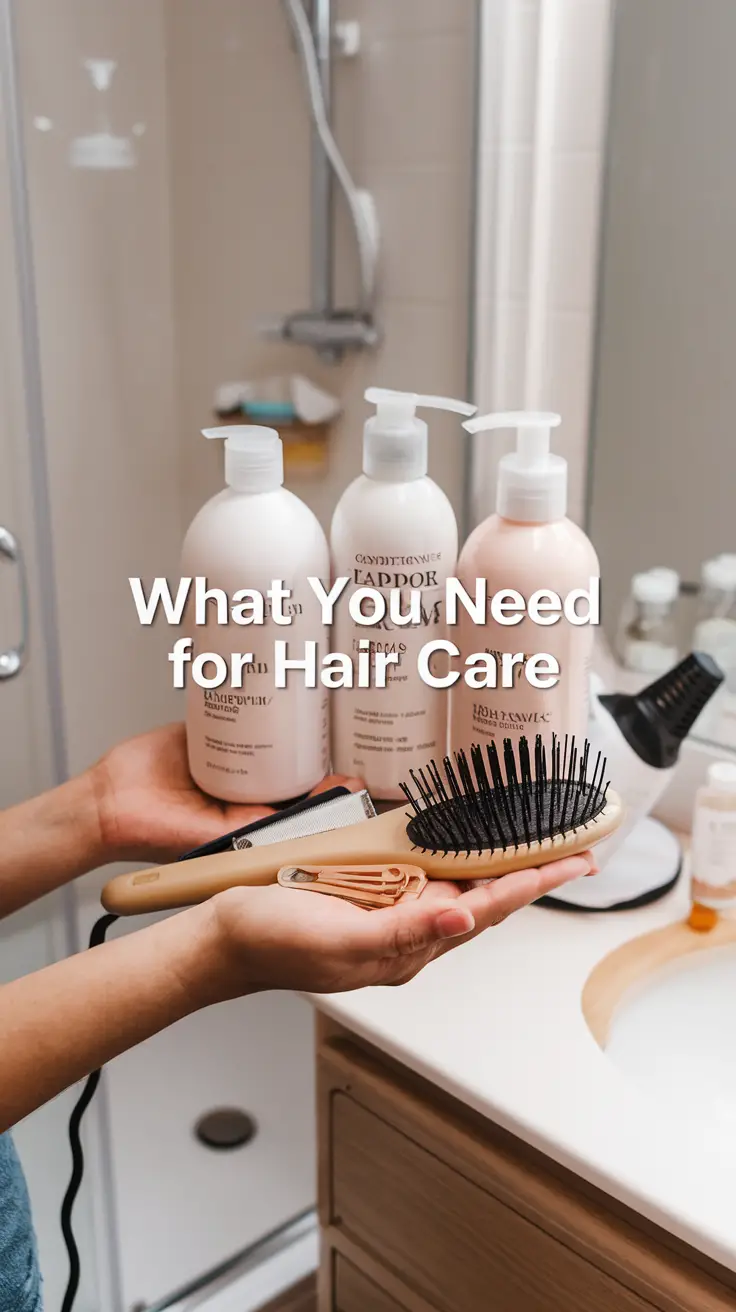
Conditioning
Conditioners are essential for detangling, moisturizing, and adding shine. Apply conditioner primarily to the mid-lengths and ends of your hair, avoiding the scalp to prevent greasiness. For deeper nourishment, use a hydrating mask weekly.
DIY Tip: Create a homemade mask by mixing 2 tablespoons of coconut oil with 1 mashed avocado. Leave it on for 20 minutes, then rinse thoroughly.
Scalp Care
The scalp is the foundation of healthy hair. Massaging your scalp regularly with natural oils like argan or tea tree stimulates blood flow and promotes growth. Once a week, use a gentle exfoliant to remove dead skin and buildup.
Protecting Your Hair
Day and night protection can prevent unnecessary damage:
- Day: Use UV-protectant sprays and avoid tight hairstyles.
- Night: Sleep on a silk pillowcase to reduce friction and keep your hair smooth.
The Right Tools and Products
Having the right tools is as important as using the right products. Here’s a quick checklist:
| Tool/Product | Why It’s Important |
|---|---|
| Wide-tooth comb | Gently detangles wet hair without causing breakage. |
| Microfiber towel or T-shirt | Reduces frizz and minimizes friction when drying. |
| Heat protectant spray | Shields hair from damage during heat styling. |
| Leave-in conditioner | Keeps hair hydrated and manageable between washes. |
Eco-Friendly Tip: Switch to sustainable options like bamboo brushes and refillable shampoos.
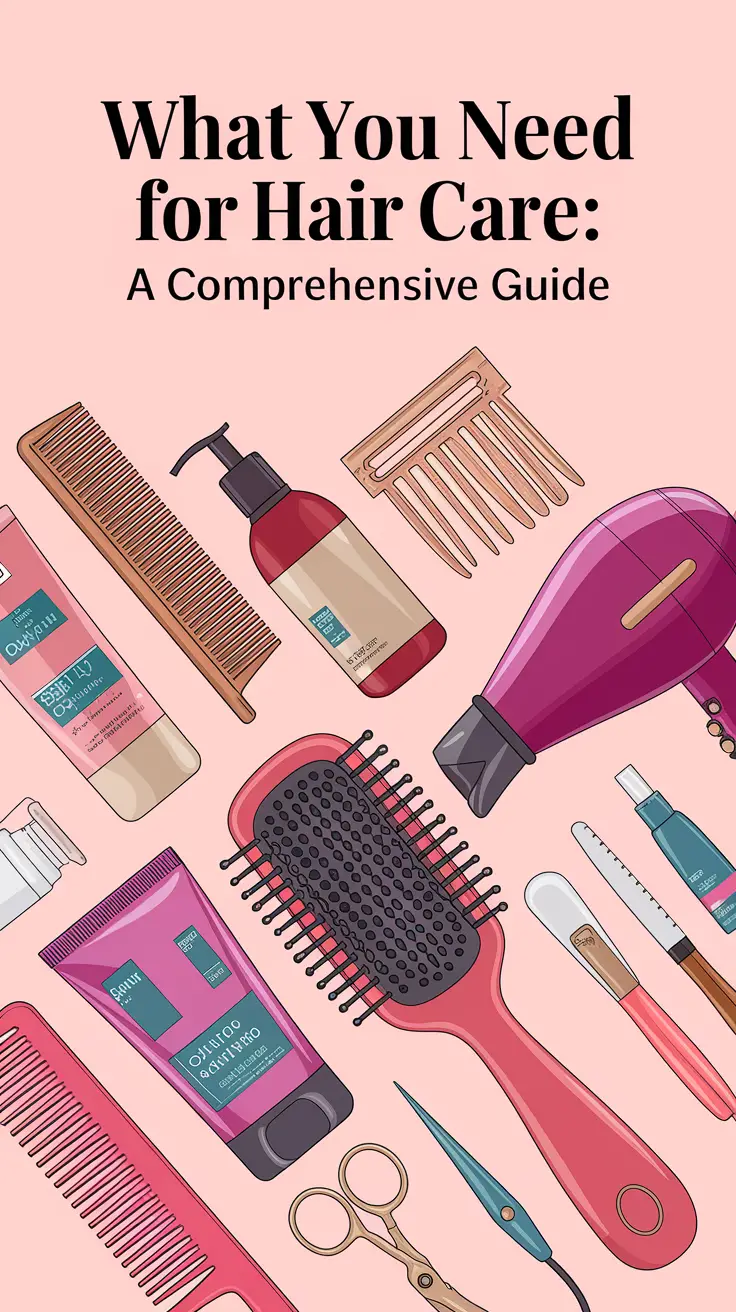
Seasonal Hair Care Tips
Hair care needs fluctuate with the seasons:
- Winter: Use deeply hydrating masks to combat dryness from indoor heating.
- Summer: Protect your hair from UV damage with sun-protectant sprays.
- Spring/Fall: Strengthen your hair with protein treatments to reduce shedding.
Common Hair Problems and Solutions
Split Ends:
Regular trims (every 6-8 weeks) are essential for preventing split ends. Avoid overusing heat tools, and always apply a protectant before styling.
Hair Thinning:
If you notice thinning, incorporate products with biotin and collagen. Consider consulting a professional if the problem persists.
Frizz Control:
Tame frizz with leave-in conditioners and smoothing serums. I’ve found that air-drying my hair with a curl-defining cream works wonders for wavy textures.
Nourishing Your Hair from Within
Healthy hair starts with a balanced diet. Incorporate these key nutrients:
- Proteins: Found in fish, eggs, and nuts, essential for hair strength.
- Omega-3 Fatty Acids: Promote a healthy scalp and shiny hair.
- Vitamins A and C: Support sebum production, keeping hair naturally moisturized.
Conclusion
Caring for your hair means more than just washing it; it’s about adopting a routine tailored to your hair’s unique needs. By understanding your hair type, choosing the right products, and maintaining a balanced diet, you’ll set yourself up for luscious, healthy locks. Why not start your journey today? Share your favorite hair care tips in the comments!
FAQs
1. How often should I wash my hair?
This depends on your hair type. Oily hair may require daily washing, while dry hair benefits from less frequent cleansing.
2. What’s the best way to reduce frizz?
Use leave-in conditioners and avoid over-drying your hair. A silk pillowcase can also help reduce frizz.
3. Can I use oils on my scalp?
Yes! Oils like argan and tea tree are excellent for moisturizing the scalp and promoting hair growth.
4. How do I protect my hair from heat damage?
Always apply a heat protectant spray before using styling tools, and use the lowest heat setting possible.
5. What are the benefits of using a satin or silk pillowcase?
Satin and silk reduce friction, preventing breakage and frizz while keeping your hair smooth.
6. What’s the best way to handle split ends?
Trimming your hair every 6-8 weeks and using a deep conditioner can help minimize split ends.
